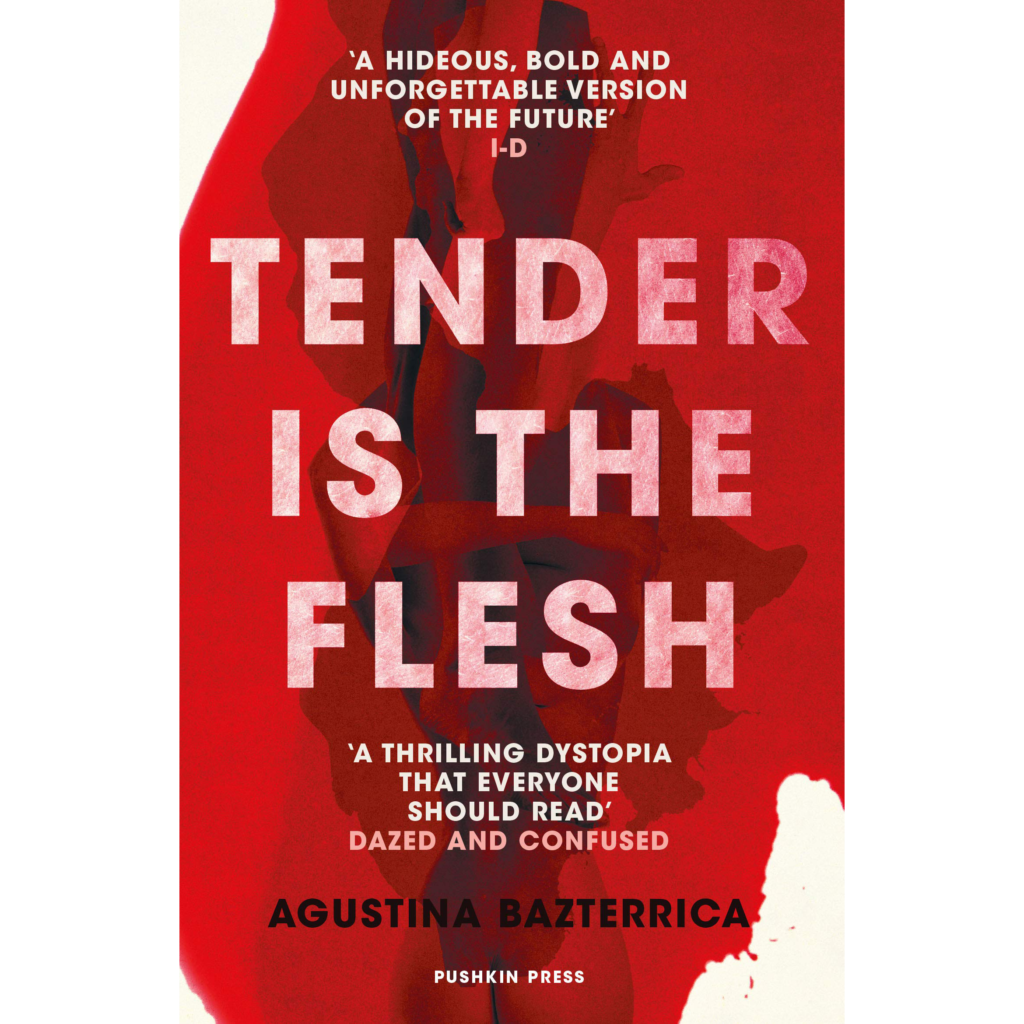“Tender Is the Flesh” by Agustina Bazterrica is a haunting dystopian novel that delves into a nightmarish reality where human cannibalism has become normalized. Originally published in Spanish as “Cadáver Exquisito” in 2017 and later translated into English, the novel has garnered widespread acclaim for its provocative and disturbing exploration of society, ethics, and the human condition.
A Dystopian Nightmare
The novel is set in a future where a virus has made all animal meat inedible, forcing society to turn to human flesh for sustenance. In this world, humans are bred, slaughtered, and consumed just like livestock, but the chilling normalization of this practice is what gives the novel its horrific power. The government euphemistically refers to humans raised for food as “special meat,” and the process of turning them into consumable products is industrialized and sanitized, much like modern-day meat processing.
The Story of Marcos
The protagonist, Marcos, works in a processing plant that deals with the slaughter and distribution of human meat. The novel follows Marcos as he navigates his daily life, haunted by the death of his son and estranged from his wife. His internal conflict and moral disintegration form the heart of the narrative. As the story progresses, readers witness Marcos’s growing discomfort with the world he inhabits, despite his participation in its gruesome practices.
Themes of Dehumanization and Morality
Bazterrica’s novel is rich with themes that challenge readers to reflect on the nature of humanity, morality, and society. One of the central themes is dehumanization—how easily people can be stripped of their humanity and reduced to mere products. The novel critiques the ways in which societies can become desensitized to brutality, especially when it is cloaked in bureaucracy and language that distances the perpetrators from the violence they commit.
The ethical implications of a world where cannibalism is normalized are explored in depth. Bazterrica forces readers to confront uncomfortable questions about what it means to be human, the ethics of consumption, and the fine line between civilization and barbarism. The novel’s portrayal of a society that accepts the most horrific practices as normal serves as a stark commentary on how easily ethical boundaries can be eroded.
Critical Reception
“Tender Is the Flesh” has been praised for its bold and unsettling narrative. Critics have lauded Bazterrica’s ability to create a world that is both eerily familiar and terrifyingly alien. The novel’s intense and often disturbing content has sparked discussions about its relevance to contemporary issues, such as the ethics of industrialized farming, the objectification of bodies, and the power of language in shaping reality.
However, the novel’s graphic content and unflinching depiction of violence have also made it a challenging read for some. The book does not shy away from depicting the horrors of its world, making it a deeply unsettling experience that lingers long after the final page.
Conclusion
“Tender Is the Flesh” is a powerful, thought-provoking work that pushes the boundaries of dystopian fiction. Agustina Bazterrica’s novel is a chilling exploration of a world gone mad, where the line between human and animal, ethical and unethical, has been completely obliterated. It serves as both a cautionary tale and a stark reminder of the fragility of our moral constructs. For those willing to confront its dark themes, “Tender Is the Flesh” offers a compelling and unforgettable reading experience.



